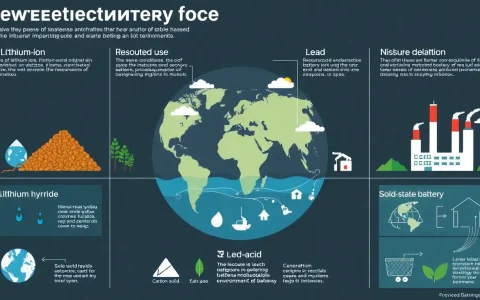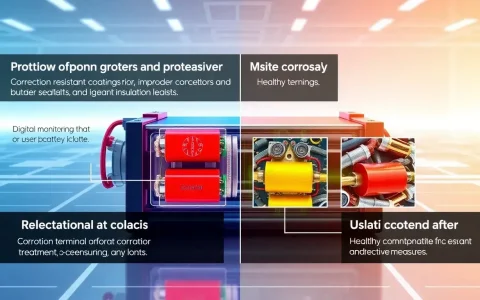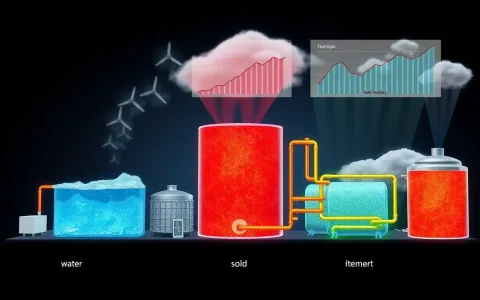
1. Provides optimized energy usage, 2. Enhances renewable energy integration, 3. Reduces electricity costs, 4. Improves energy reliability and resilience.
Power management in residential energy storage systems plays a pivotal role in ensuring that energy generated from renewable sources, such as solar panels and wind turbines, is effectively utilized. By optimizing the way energy is stored and distributed, occupants gain significant control over energy flow and can maximize the use of renewable energy while minimizing reliance on the grid. This not only helps homeowners reduce monthly energy expenses but also aids in decreasing the carbon footprint associated with conventional power sources.
1. SIGNIFICANCE OF POWER MANAGEMENT
Power management encompasses techniques and technologies that facilitate the efficient utilization and distribution of electrical energy within residential structures. On a fundamental level, it is concerned with making the best use of available energy resources, particularly in homes that incorporate energy storage systems. By employing sophisticated algorithms and hardware solutions, power management systems can significantly reduce energy waste. This capability becomes critical as more households turn to renewable energy sources, leading to a shift in how energy consumption is perceived and managed.
Firstly, the importance of power management can be highlighted by its role in energy efficiency. Residences often consume energy at varying rates throughout the day, influenced by factors such as the time of day, season, and homeowner activities. Through power management systems, households can strategically schedule energy-consuming activities, such as running appliances during off-peak hours when energy costs are lower. As a result, this not only leads to reduced electricity bills but also eases demand on the electrical grid, particularly during peak usage times.
Secondly, effective energy monitoring allows homeowners to understand their consumption patterns. When equipped with smart appliances and real-time monitoring tools, families can identify areas where they can cut back on unnecessary energy usage. This heightened awareness leads to more informed decisions regarding energy consumption and fosters sustainable practices, encouraging all household members to engage in energy-saving behaviors.
2. INTEGRATING RENEWABLE ENERGY SOURCES
As global emphasis on sustainability increases, residential energy storage systems equipped with power management technologies create an avenue for households to harness renewable energy efficiently. Specifically focusing on systems like solar batteries allows homeowners to store surplus energy generated during peak sunlight hours. Utilizing this stored energy during periods of low generation minimizes the need for energy drawn from the grid, thus promoting self-sufficiency.
Moreover, managing renewable energy integration involves understanding and predicting energy production based on varying weather conditions and seasonal changes. Advanced energy management systems can analyze historical data and real-time conditions to optimize when and how energy should be used or stored. For example, if a weather forecast indicates several cloudy days ahead, an effective power management system can advise homeowners to utilize stored energy conservatively or run specific appliances more efficiently to prolong the use of renewable resources.
An additional angle of renewable integration is the economic benefit derived from governmental incentives. Many regions provide financial rebates or tax credits for households utilizing renewable energy systems and advanced energy management technologies. These incentives encourage homeowners to invest in residential energy storage solutions and emphasize the long-term savings that can be achieved. As sustainability becomes a paramount objective for many, the financial implications further reinforce the necessity of sophisticated power management.
3. ECONOMIC IMPACT AND COST REDUCTION
One of the primary advantages of implementing power management in residential energy storage systems is the notable reduction in energy costs. Reducing reliance on the traditional power grid allows homeowners to capitalize on free solar energy accumulated during daylight hours, effectively lowering their monthly energy bills. As electricity prices continue to increase in many areas, this aspect becomes increasingly relevant, compelling more families to consider energy-efficient solutions.
Additionally, power management enables homeowners to take advantage of time-of-use (TOU) rates offered by many utility providers. By storing energy when consumption is low and prices are cheaper, users can run appliances during peak usage times without incurring exorbitant costs. This flexibility not only enhances the financial situation of the household but also promotes better grid management overall.
Furthermore, the integration of energy storage systems allows homes to become semi-independent from the traditional electrical grid. By utilizing stored energy during peak demand periods, residential systems help mitigate the burden on utility companies, especially during extreme weather conditions when many households rely heavily on air conditioning or heating. This shift towards energy autonomy not only contributes to personal financial savings but also supports the overarching goal of reducing stress on overall energy resources.
4. ENHANCING RELIABILITY AND RESILIENCE
Another critical benefit of implementing power management in residential energy storage systems is the enhancement of energy reliability and resilience. In regions where power outages are common, having a reliable backup energy source can mitigate the impact of these service interruptions. Energy storage systems equipped with robust power management can seamlessly provide households with backup energy during outages, ensuring essential appliances remain operational.
Moreover, power management technologies allow homeowners to prioritize the use of energy during emergencies. In the event of an outage, these systems can be programmed to allocate energy to vital appliances, such as refrigerators and medical devices, ensuring the well-being of residents is maintained. As extreme weather events become more frequent due to climate change, the demand for energy resilience intensifies, pushing many homeowners towards adopting advanced energy management solutions.
Additionally, advanced power management also promotes community resilience. When multiple households utilize similar systems, the aggregate effect can stabilize local grids by reducing overall demand during peak hours, effectively addressing challenges faced by energy providers. Such collective energy management approaches can foster a more sustainable future, strengthening community ties, and encouraging collective action towards energy independence.
5. ENVIRONMENTAL SIGNIFICANCE
The ramifications of employing effective power management techniques in residential energy storage extend beyond economic and operational benefits; they also hold considerable significance in terms of environmental impact. By encouraging the use and integration of renewable energy sources, household energy solutions contribute to a marked reduction in greenhouse gas emissions. Each household that effectively manages energy not only decreases energy costs but also plays a crucial role in combatting climate change.
Furthermore, enhancing energy efficiency through advanced power management reduces the overall demand for fossil fuel-generated energy. This transition is critical, as fossil fuels represent a substantial contributor to pollution and adverse health effects in communities worldwide. As more individuals turn towards sustainable energy practices, the collective impact can sway local and global energy policies toward a greener and more sustainable future.
Additionally, energy-efficient practices can help reduce energy production, thus conserving natural resources. By minimizing excessive energy consumption, individuals advocate for more sustainable usage of available resources, leading to less energy waste and degradation to the environment. Encouraging a mindset change towards energy consumption can impact generations to come as communities foster sustainable practices.
FAQs
WHAT TECHNOLOGIES ARE AVAILABLE FOR POWER MANAGEMENT IN RESIDENTIAL ENERGY STORAGE?
A variety of technologies exist for optimizing power management in home energy storage systems. Smart inverters, energy management systems (EMS), and demand response technologies are among the most noteworthy. Smart inverters perform crucial functions by converting direct current (DC) produced by solar panels to alternating current (AC) necessary for home use while also allowing for grid connection and management.
Energy management systems leverage advanced algorithms to optimize energy use, ensuring that batteries are charged and discharged effectively. These systems provide insights into household energy patterns, enabling automation for maximizing efficiency. Understanding real-time energy costs also allows homes to adjust usage patterns accordingly. Moreover, demand response technologies enable communication between households and utilities, fostering a proactive approach to energy management based on grid conditions.
HOW DOES POWER MANAGEMENT IMPACT ELECTRICITY BILLING?
Power management systems can profoundly influence electricity billing through several mechanisms. By optimizing usage patterns to reduce consumption during peak demand phases, homeowners can significantly lower their monthly energy costs. Not only does this depend on shifting energy consumption to off-peak hours, but it also encourages the utilization of stored renewable energy when grid prices are high.
Moreover, many utilities operate on time-of-use (TOU) billing structures, where energy costs fluctuate based on the time of day. Power management systems can help households exploit these fluctuations, enabling them to store energy when prices are lower and drawing from the grid during higher-rate periods only when absolutely necessary. This strategic approach results in tangible savings reflected in monthly utility invoices, ultimately leading to more economical energy management.
WHAT ARE THE LONG-TERM BENEFITS OF RESIDENTIAL ENERGY STORAGE SYSTEMS WITH POWER MANAGEMENT?
The long-term benefits of integrating advanced power management in residential energy storage systems are multifaceted. Economically, homeowners can enjoy consistent savings on energy bills due to reduced reliance on grid electricity and optimized energy use. As utility prices are projected to continue rising, the savings generated through such systems become increasingly significant over time.
Ecologically, the benefits are equally relevant. By supporting renewable energy utilization and decreasing the dependency on fossil fuels, households contribute to environmental sustainability efforts. This collective push toward greener living can lead to broader societal changes, fostering innovation in renewable technologies and encouraging more sustainable practices. Additionally, power management enhances energy independence by allowing homes to become less reliant on the grid, which can be particularly crucial during extreme weather events or power outages.
Final Thoughts
Emphasizing the pivotal role of power management in residential energy storage is crucial for maximizing benefits across various facets. From optimizing energy efficiency, enhancing renewable integration, and reducing costs to improving reliability and supporting environmental sustainability, power management techniques are foundational in transforming how households consume and manage energy. As cities grow and energy demands evolve, the implementation of advanced power management technologies will be integral in shaping a sustainable future, empowering homeowners to embrace innovative energy solutions and contribute actively to societal resilience.
Future advancements in this field signal a trajectory toward even greater efficiency and integration within communities, ultimately redefining energy landscapes as we progress towards a cleaner and more sustainable world. Each household equipped with effective power management systems not only elevates personal energy autonomy but collectively fosters a movement towards robust energy solutions that can withstand the challenges of today and tomorrow.
Original article by NenPower, If reposted, please credit the source: https://nenpower.com/blog/what-is-the-importance-of-power-management-in-residential-energy-storage/











